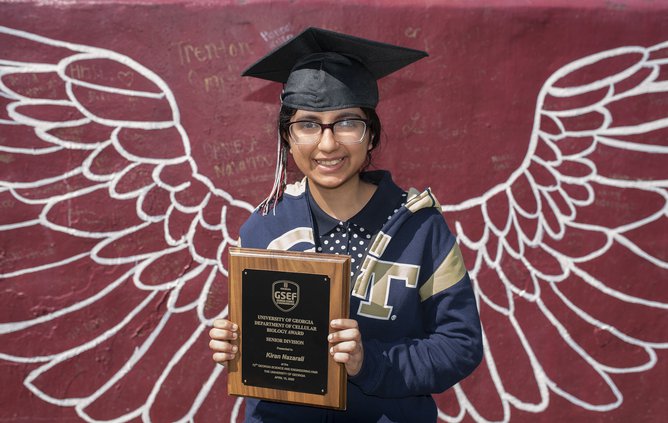The Chestatee High School senior, bound for Georgia Institute of Technology in the fall, said she’s been taking college classes in the dual enrollment program since her ninth grade year and discovered the research program through her college professors. She said a professor in South Carolina, where she used to attend school, opened up the research opportunities to her.
'It’s always important that you can make new opportunities.' Kiran Nazarali graduating from Chestatee with cancer research experience

